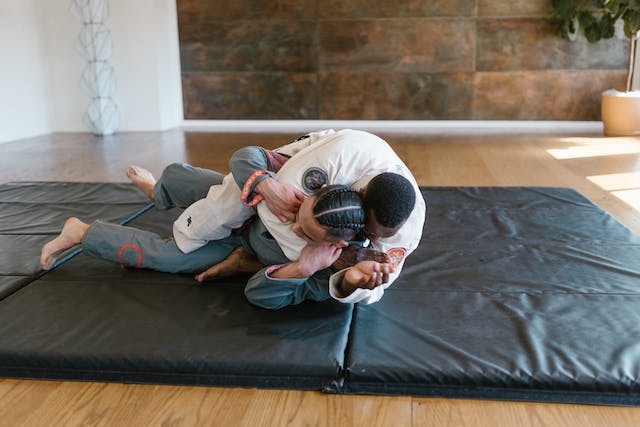7 British Vs American Spelling Differences
English, a language known for its linguistic diversity, takes on subtle variations as it crosses the Atlantic. The disparities between British and American English go beyond accents and colloquialisms; they extend into the realm of spelling. While the two share a common ancestry, their paths have diverged, leading to British vs American spelling distinctions that can sometimes bewilder language learners and even native speakers.
→Sign Up Now: Free Trial English Lesson With a Native Teacher!←
This article delves into the nuances of British vs. American spellings, exploring the reasons behind the differences and shedding light on some of the most notable distinctions.
Here are four types of words that present spelling differences in the two main varieties of English.
1. Colour vs. Color
The divergence in the spelling of words like “colour” and “color” is a quintessential example of the transatlantic spelling divide. The American tendency toward simplification, often attributed to the influence of linguistic reformist Noah Webster, is evident in the omission of the ‘u’ in words ending with -our. This change reflects a conscious effort to align spelling with pronunciation. Here are some common words showcasing this distinction:
- British English: Colour, favour, neighbour, honour
- American English: Color, favor, neighbor, honor
While the change might seem minor, it epitomizes the subtle but significant differences that have emerged between the two forms of English.
2. Centre vs. Center
The variation in the spelling of “centre” and “center” exemplifies another instance where the Americans are more straightforward. In British English, words like “centre” follow a conventional ‘re’ ending. This spelling is consistent across various words, such as “centre,” “metre,” “theatre,” and “litre.” The use of ‘re’ reflects the historical development of English and aligns with the language’s roots, i.e., how words were pronounced in the past.

On the other side of the Atlantic, Webster proposed spelling reforms aimed at making English more phonetic and straightforward. As a result, words like “center,” adopt a shortened form, dropping the ‘re’ found in their British counterparts.
- British English: Centre, theatre, metre, litre
- American English: Center, theater, meter, liter
The shift from ‘re’ to ‘er’ in American English maintains consistency and aligns with the principle of simplifying linguistic elements without compromising clarity.
3. Recognise vs. Recognize:
The discrepancy in the spelling of “recognise” and “recognize” follows a pattern similar to other words. The American adaptation, which replaces the voiceless ‘s’ for the voiced consonant ‘z’ aligns with the broader effort to make spelling mimic pronunciation as much as possible.
Below are examples showcasing this difference:
- British English: Recognise, organise, analyse, realise
- American English: Recognize, organize, analyze, realize
4. Travelling vs. Traveling:
The addition of the double ‘l’ in British English reflects the historical influence of French and aligns with the traditional spelling patterns. In American English, the simplification eliminates the repeated consonant:
- British English: Travelling, cancelled, labelled, fuelled
- American English: Traveling, canceled, labeled, fueled
5. Manoeuvre vs. Maneuver:
Webster’s reforms aimed to make spelling more intuitive and phonetic, and this change in words like “manoeuvre” reflects that principle.
The simplification of written diphthongs “oeur” “oe” and “ae” in American English reflects the need to eliminate unpronounced letters:
- British English: Manoeuvre, leukaemia, oestrogen, paediatric
- American English: Maneuver, leukemia, estrogen, pediatric.
6. Dialogue vs. Dialog:
The elimination of the unpronounced ending “ue” in American English is consistent with the broader trend of simplification. However, while British English only accepts words with this termination, American English accepts both.
- British English: Dialogue, catalogue, analogue, monologue
- American English: Dialog(ue), catalog(ue), analog(ue), monolog(ue)
7. Defence vs. Defense:
Both “defence” and “defense” are valid spellings of the same word, with the distinction between the two, involving the use of ‘c’ and ‘s,’ being region-dependent. In the United States, the preferred spelling is “defense,” utilizing the ‘s.’ Here are more examples of this British vs. American spelling disagreement:
- British English: Defence, offence, pretence, licence
- American English: Defense, offense, pretense, license
Beyond British vs. American Spelling Rules: Learn English Now
Embarking on the journey of learning English is a transformative experience, and at Language Trainers, we’re committed to making that journey not only educational but also personalized to your linguistic goals. Our approach goes beyond textbooks; we believe in the power of human connection and tailor-made learning experiences.
Imagine you’re moving to New York for work—learning English is not just about mastering grammar and vocabulary; it’s about immersing yourself in the linguistic nuances of American English. That’s where our unique approach comes in. We understand the importance of having a pronunciation model that resonates with your destination.
At Language Trainers, we pair you with a native-speaking teacher, ensuring that your learning journey is not only authentic but also aligns with your specific language goals. In the case of our New York-bound learner, we’d match you with an American teacher who brings not only language proficiency but also the cultural insights that make your English experience richer.
→Sign Up Now: Free Trial English Lesson With a Native Teacher!←
After all, learning English is not just about communication; it’s about connecting with a global community and understanding the subtle variations that make each English-speaking region unique. Whether you’re aiming for British eloquence or American vibrancy, our dedicated teachers are here to guide you.
So, why wait? Join us at Language Trainers. Whether you’re looking for in-person English lessons in New York (or any other city!) or an online English course, we’ve got you covered!

